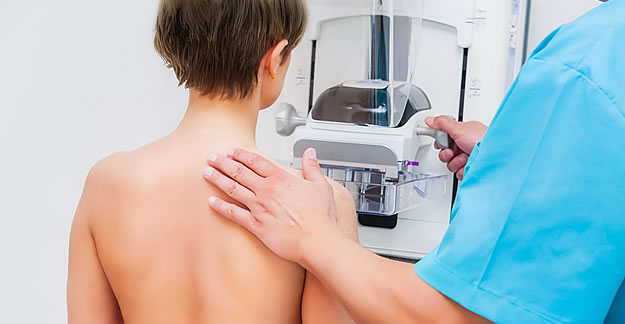There are risks and benefits to mammograms – but a new study shows women are ignoring the risks.
Mammogram Pros: They save lives. Mammograms are estimated to reduce cancer rates by 15%. Translated, that means that over a 10-year period if 2,000 women get screening mammograms, 1 will have her life saved.
Mammogram Cons: They cause significant harm. Over those same 10 years, of those 2,000 women 10 will undergo treatment for no reason — because of a cancer that never would have grown. Further, 200 of those 2,000 women will “experience important psychological distress including anxiety and uncertainty for years because of false positive findings,” according to a Cochrane review on breast cancer screening with mammography published in 2013.
These pros and cons apply to screening mammograms, which are those conducted on healthy women with no symptoms or history of breast cancer.
The overtreatment of breast cancers might be acceptable if the treatment was simple, low cost and reasonably pain-free. However, that is not how cancer care is today. Cancer treatment is a life-altering invasion of women’s bodies that can harm nearby organs, increase her risk for a secondary cancer and make it more difficult to treat an actual or secondary breast cancer.
A new research paper based on a national survey just published in JAMA shows just how skewed women’s perceptions of the benefits and harms of mammograms are.
When asked, more than 90% of women knew the 4 benefits of mammograms listed in a recent study. The benefits were (in no order) that mammograms can:
- Save lives: 92% had heard this before and 66% called it “very Important”
- Lead to earlier treatment: 96.2% had heard before and two-thirds called it “very Important”
- Peace of mind: 92.2% had heard this before and 56.5% called it “very Important”
- Find cancer early: 91.2 had heard this before and 65.9% called it “very Important”
Looking at the 7 questions about mammogram harms, I found a very different picture. Fewer women knew there were potential harms and the women ranked them lower.
- Some breast cancers found by mammograms are treated with potentially risky surgeries or meds that would not have needed such treatment after all. 39.7% had heard of this before and 28.7% said it was “very Important”
- Some breast cancers that are found by mammograms are so slow-growing that they would not have caused any health problems for women in their lifetime. 26.5% had heard of this and 21.5% called it “very Important”
- Women who receive positive mammogram results, even if eventually it turns out they do not have cancer, may feel anxious and stressed. 77.6% had heard before and 23.5% found this “very Important”
- Mammograms, like all x-rays, expose women to very small doses of radiation, which could increase risk for cancer. 67.4% had heard of this and 19.6% said it was “very Important”
- Mammograms can find something that looks like cancer but eventually turns out not to be cancer. This is called a “false-positive” or “false alarm.” 75.4% had heard before and 23.4% called it “very Important”
- Mammograms can lead to increased costs to women because of follow-up tests and procedures. 50.1% had heard this before and 18.8% said it was “very Important”
- Mammograms can lead to increased costs to the health care system because of follow-up tests and procedures. 42.7% had heard before and 15.1% said it was “very Important”
Needing Few Slogans, More Science
The benefits of mammograms can by synthesized down to 2-3 word slogans like “Mammograms Save Lives” which is true, but it’s also true that “Mammograms have risks of harms.”
Face it, everyone knows someone who has had a breast cancer diagnosis. Between the education campaigns, the pink ribbons and the walks, the fear and loathing of breast cancers surround women and create an atmosphere of mammogram worship. “If I get a mammogram,” I think to myself, “then I won’t die of breast cancer.” Unfortunately, that’s not true. Some breast cancers are too aggressive and virulent to control or “beat,” no matter how early caught.
Somehow the message in America has changed from “Mammograms might help find cancer at a time when medicine can fight it,” to “If you get a mammogram every year you can prevent or avert breast cancer.” And that’s silly. At this point we don’t understand how and why breast cancer occurs so we can’t promise anyone that anything you do will let you avoid it.
It’s a challenge in a world of threats to maintain rationality instead of placing undue faith in a screening program that has plenty of flaws. It may be the best we’ve got, but after 30 years of “early detection saves lives,” don’t we deserve better? How about a screening program that can detect the difference between a cancer or pre-cancer that is a danger and those cancers that will never grow into a threat?







